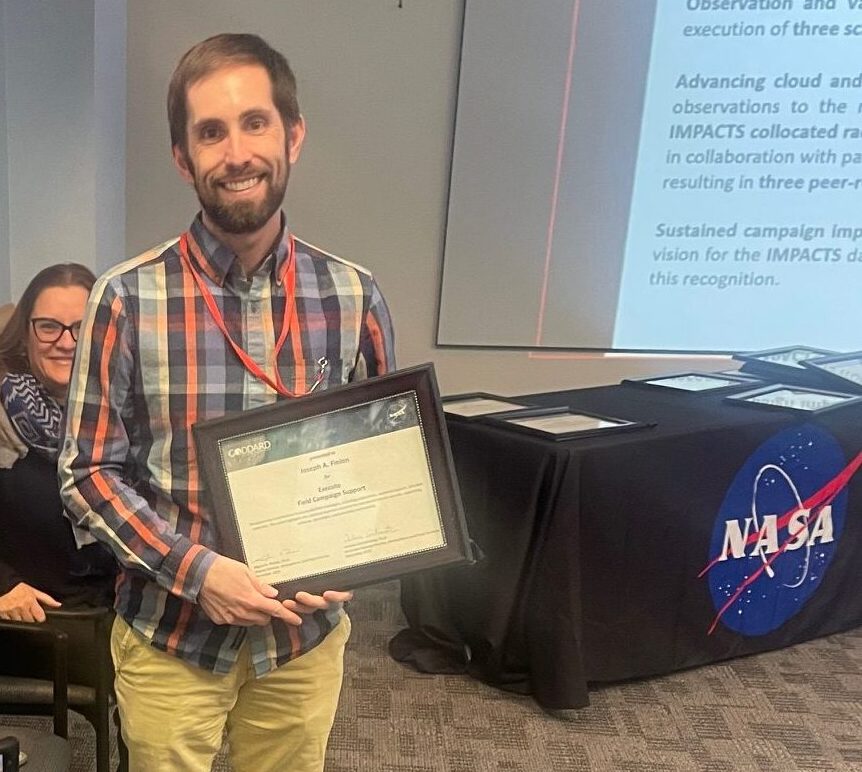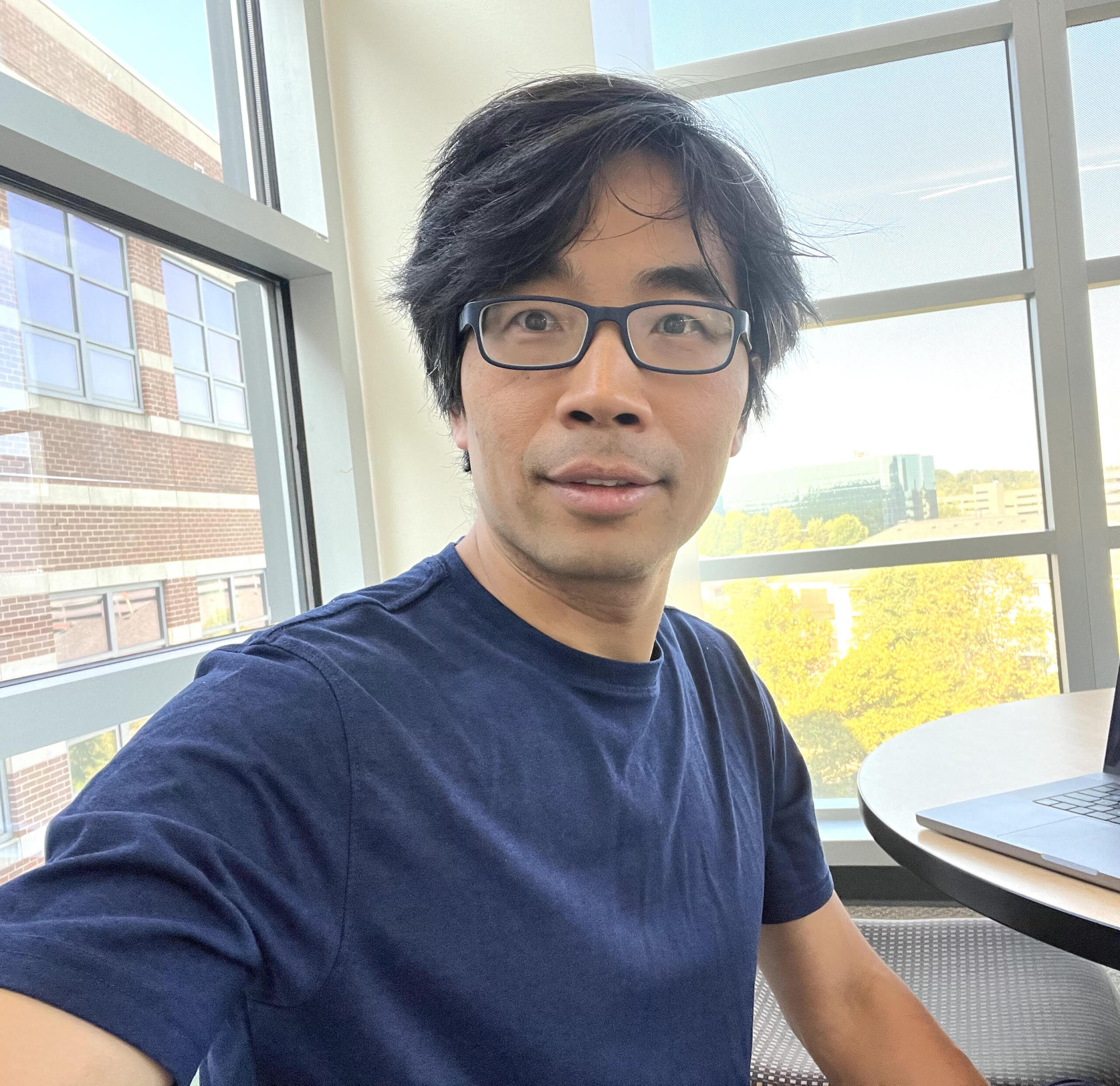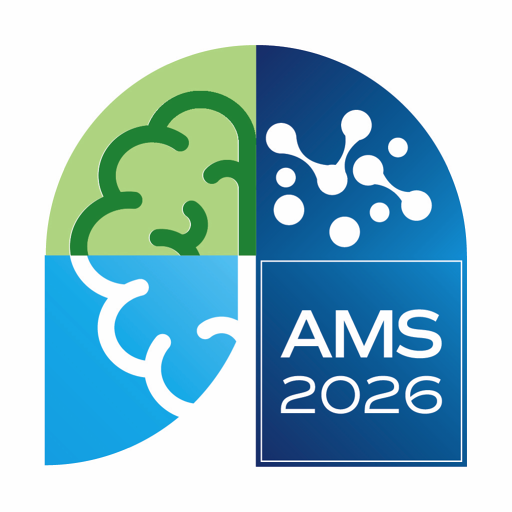 Zhanqing Li has been awarded the AGU John Tyndall History of Global Environmental Change Lectureship for his exceptional contributions to advancing atmospheric, environmental, and global change sciences.
Zhanqing Li has been awarded the AGU John Tyndall History of Global Environmental Change Lectureship for his exceptional contributions to advancing atmospheric, environmental, and global change sciences.
American Geophysical Union (AGU), the world’s largest Earth and space science association, holds its annual meeting with ~26000 attendees from around the world. Through its annual Honors and Recognition program, individuals and teams will be honored for their accomplishments in research, education, science communication, and outreach. These honorees have transformed our understanding of the world, impacted our everyday lives, improved our communities and contributed to solutions for a sustainable future. The John Tyndall History of Global Environmental Change Lecture is given by one individual in recognition of outstanding contributions to our understanding of global environmental change. John Tyndall was Irish scientist who discovered the trace gases in the atmosphere causing the greenhouse effect in 1859. The lecturer will give a keynote address to large audience on recent advancements in global environmental studies.
Li, a Distinguished University Professor at the University of Maryland’s Department of Atmospheric and Oceanic Science and Earth System Science Interdisciplinary Center, has a broad scope of research interests concerning atmosphere, environment, and climate. He has developed a suite of satellite techniques and products for the earth’s radiation budget, aerosols, clouds, precipitation, gaseous and particulate pollutants, biomass burning, and used them to understand their interactions and impacts on climate, air quality, and public health. Li’s team has conducted field experiments in the US and Asia, and developed satellite algorithms and global datasets of aerosol, cloud, particulate matter (e.g. PM2.5), and gaseous air pollutants (Ozone, SO2, NOx) and uses them to advance understanding of complex aerosol-cloud-climate interactions and how air pollution affects weather, climate and public health.
Li joins a distinguished group of scientists, leaders, and communicators recognized by AGU for advancing science. Each honoree reflects AGU’s vision for a thriving, sustainable and equitable future supported by scientific discovery, innovation and action.
Li will give the Tyndall History of Global Environmental Change Lecture entitled “Global Environmental and Climate Changes: Intertwined Relationships Shaped by Aerosols and Implications for Our Well-being” at AGU25, which will convene in New Orleans, Louisiana on 15-19 December 2025. Reflecting the theme ‘Where Science Connects Us’ at AGU25, the Honors Reception will recognize Li as well as the other honorees for their groundbreaking achievements that illustrate science’s continual advancement and inspire the AGU community with their stories and successes.
“It is a great privilege to deliver a keynote in honor of the founding father of modern climate science. I learned about this giant and his discovery of the greenhouse effect in 1987, when I began my Ph.D. studies at McGill University. Since then, I have devoted my career to advancing climate and environmental sciences,” said Li, “The theoretical foundation of global warming is as solid as a rock, but the surface of the rock is often obscured by layers of ‘dirt’ that make it difficult to see clearly. Among the most influential of the obscuring factors are aerosols—tiny particles that not only complicate our understanding of Earth’s climate but also directly affect the environments in which we live. Sorting out the dual role and interactions remains one of the most critical challenges.”
AGU press contact:
Samson Reiny, +1 (202) 998-8654, news@agu.org (UTC-4 hours)
About the Earth System Science Interdisciplinary Center (ESSIC)
The Earth System Science Interdisciplinary Center is a joint center of the University of Maryland and NASA‘s Goddard Space Flight Center that supports research, teaching and career training in Earth system science. ESSIC also administers the Cooperative Institute for Satellite Earth System Studies (CISESS), a joint center with NOAA’s NCEP and NESDIS that conducts satellite research focused on weather and water forecasting models and predictions. ESSIC scientists seek to understand the relationships between Earth’s atmosphere, oceans, land masses and biosphere, with an eye to the influence of human activities on Earth’s coupled systems.
About AGU
AGU (www.agu.org) is a global community supporting more than half a million advocates and professionals in the Earth and space sciences. Through broad and inclusive partnerships, AGU aims to advance discovery and solution science that accelerate knowledge and create solutions that are ethical, unbiased and respectful of communities and their values. Our programs include serving as a scholarly publisher, convening virtual and in-person events and providing career support. We live our values in everything we do, such as our net zero energy renovated building in Washington, D.C. and our Ethics and Equity Center, which fosters a diverse and inclusive geoscience community to ensure responsible conduct.
About the Department of Atmospheric and Oceanic Science (AOSC)
The Department of Atmospheric and Oceanic Science is a nationally ranked academic unit in UMD’s College of Computer, Mathematical, and Natural Sciences. AOSC pursues science that is intellectually and computationally challenging, yet of great relevance for societal well-being and the health of our planet. AOSC is home to 100+ exceptional graduate and undergraduate students, and 16 tenure-track and 15 professional-track faculty of national and international stature who analyze and model notable features of the oceans, atmosphere, land surface, cryosphere, and biosphere, and develop data acquisition and assimilation strategies to improve modeling and prediction. Expertise in the interaction of these systems enables AOSC to provide insights into the functioning of the climate system, including a process-level understanding of regional Climate Change.





